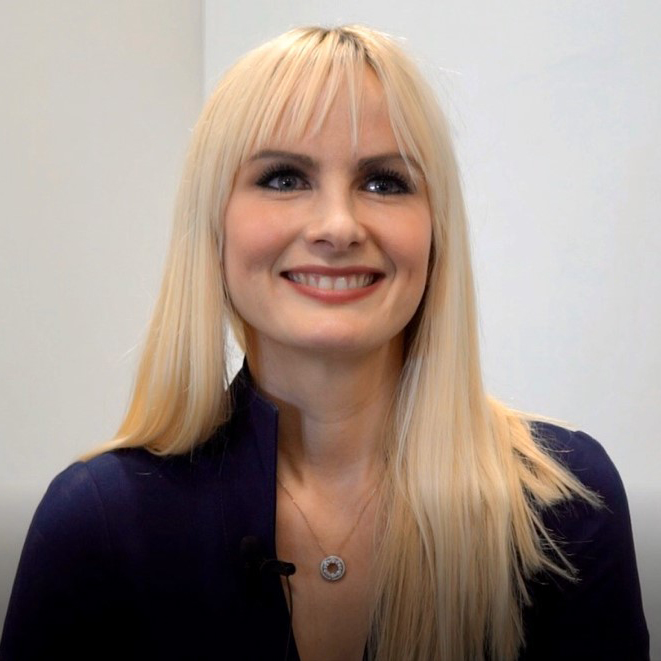Free
4hours 20mins
CHANGING BEHAVIOUR: FROM POLICY TO TABLE
Moving the Dial towards Healthy Sustainable Diets
Wednesday 17 November 2021
4hr 20mins
CHANGING BEHAVIOUR: FROM POLICY TO TABLE
Moving the Dial towards Healthy Sustainable Diets
Wednesday 17 November 2021
4hr 20mins
Free
4hour 20mins
Open to tutors, students and all health professionals across the UK, Ireland and Europe
Alpro Foundation Annual Online Symposium 2021
Our food choices and dietary behaviour are having a big impact on our health and that of our planet. But changing people’s habits is notoriously difficult – so what should the approach be if we are to improve, for the sake of both health and sustainability?
This half day e-symposium welcomes international experts to explore policies, along with scientific insights into how to nudge people into new habits. Topics also include ways of communicating with consumers about healthier, more sustainable diets; packaging; and the general food environment.
WATCH THE WEBINAR TO
GAIN CLEAR UNDERSTANDING OF:
- The size of the challenge in changing our dietary behaviour
- Latest policies – from farm to fork to waste
- How we are delivering against targets and next steps
BE AWARE OF:
- Food environment nudge tactics, underlying mechanisms and their impact
- The challenges faced with these tactics
BE ABLE TO:
- Ask questions to further understanding
- Reflect on success factors for nudge tactics designed to achieve healthier food behaviours
Please note, webinars are not intended to be used by non-medically qualified individuals or as a substitute for, or basis for any medical treatment.
Help us to continue providing expert nutrition learning
If MyNutriWeb has helped you deepen your knowledge of dietary and nutritional subjects, join us to help support and educate people to eat well for themselves and the planet. Read more...
CHAIRS:
• Professor Ian Rowland, Emeritus Professor of Human Nutrition, University of Reading
• Dr Gemma Newman, GP, Plant Power Doctor

Welcome
Chair: Professor Ian Rowland
Emeritus Professor of Human Nutrition, University of Reading
Professor Ian Rowland's Biography
Professor Ian Rowland is Emeritus Professor of Human Nutrition, University of Reading. Prior to joining the University of Reading in 2007 as the Hugh Sinclair Professor of Human Nutrition, Ian was head of nutrition at Ulster University. He holds a BSc and PhD in microbiology from University College London and an honorary doctorate from Gent University for work on nutrition and cancer. His main research area is the impact of plant-based eating and phytochemicals on health, particularly cancer and cardiovascular disease. He has published over 400 papers.

Chair: Dr Gemma Newman
GP, Plant Power Doctor
Dr Gemma Newman's Biography
Dr Newman has a specialist interest in holistic health, plant-based nutrition and lifestyle medicine. She has contributed content on the topic of Diabetes for the Winchester University Plant Based Nutrition Course, and has written a chapter for the first edition of ‘A prescription for Healthy Living, a guide to Lifestyle Medicine’ a textbook for Clinicians published by Elsevier Academic Press.
As a broadcaster she has been featured on ITV, Channel 4, Channel 5 and Sky News Sunrise as well as BBC Radio. She has contributed to articles for magazines including Glamour, Zest and Health magazine, and was featured in The Daily Telegraph for her work in plant-based nutrition. She is also host of the popular podcast by Holland and Barratt ‘The Wellness Edit’ podcast. Dr Gemma has written an accessible and friendly step by step guide to plant based living called ‘The Plant Power Doctor; a simple prescription for a healthier you’, which is a simple ‘why’ and ‘how’ sharing the benefits of plants for your health and the planet.

The European Green Deal, alternative proteins and dietary shift
Cindy Schoumacher
EU policy officer, European Commission, DG Research & Innovation
Session Outlines and Learning Objectives
- The EU policy context: the Green Deal and the Farm to Fork Strategy
- Existing projects under H2020 on alternative proteins and dietary shift
- Future of alternative proteins and dietary shift in Horizon Europe
Gain clear understanding of:
- The European Green Deal
- The Farm to Fork Strategy
- Food 2030
- Existing projects on alternative proteins and dietary shift in Horizon 2020
- Green Deal Call – Farm to Fork topics
- Horizon Europe
- Alternative proteins and dietary shift in Horizon Europe Work Programme 2021-2022
Cindy Schoumacher's Biography
View Cindy Schoumacher’s talk (30 mins CPD)

Where are we now? Sustainability gaps in the UK and EU
Dr Rosemary Green
Associate Professor in Sustainability, The London School of Hygiene and Tropical Medicine, UK
Session Outlines and Learning Objectives
The lecture will cover:
- Current diets in the UK and EU, and challenges for meeting climate and health targets.
- What are the biggest sustainability issues with our current diets?
- What might diets look like in the future if we continue on this track?
- What are the future challenges for our diets?
Watch this webinar to:
Gain a clear understanding of:
- Current levels of sustainability in UK and EU diets
- Possible co-benefits and trade-offs for different measures of environmental impact
- The complexity of our food systems and the sources of our food
Be aware of:
- Foods with the most detrimental impacts on the environment
- Current trends in diets and how these may continue in future
- Potential opportunities for improving both the health and sustainability of diets
Be able to:
- Design diets that incorporate sustainability as well as health
- Assess environmental impacts of foods that go beyond carbon footprints
- Consider behavioural changes for different populations that would bring diets closer to environmental and health targets
Dr Rosemary Green's Biography
The focus of Dr Rosemary Greens work is on the links between nutrition, environment and health, and in particular sustainable diets and food systems. In 2020 Dr Green was on the scientific panel for the UK Climate Assembly which reported back to the UK government with policy recommendations for reaching net zero by 2050.
View Dr Rosemary Green’s talk (30 mins CPD)

Persuasion and Nudging towards Healthier Diets: Basics and Pitfalls
Professor Tim Smits
Professor at KU Leuven. Persuasion & marketing communication Vice-dean of education at Faculty of Social Sciences, University Leuven, Belgium
Session Outlines and Learning Objectives
- Basic principles about how people are persuaded
- What such persuasion implies with regard to nutrition behaviour
- How media can accelerate and bias these processes even further
Gain clear understanding of:
- The importance of non-conscious thought processes in communication
- The role of media in (adolescents’) perceptions of food
- The different psychological effects of messages about core vs non-core foods
- Overestimation of the respondent’s attention to messages
- Different types of media that communicate about food
- The volume of food messages that together shape (adolescents’) food perceptions
- Reflect about food messages from a receiver perspective rather than a sender perspective
- Identify a number of important pitfalls in nutrition communication
- Identify and apply persuasive principles
Professor Tim Smits Biography
Professor in Persuasion and Marketing Communication and vice dean of Education at the Faculty of Social Sciences
KU Leuven Institute for Media Studies, Leuven, Belgium
As a full professor in Persuasion and Marketing Communication, Tim published on various topics within these fields, but focusing on dynamics that involve health and/or consumer empowerment and how these are affected by situational differences or manipulations. He also has a more methodological line of research on science replicability.
View Professor Tim Smits’ talk (30 mins CPD)

Encouraging behavioural shifts towards sustainable diets: understanding intention behaviour gaps
Dr Kate Laffan
University College Dublin, Ireland
Session Outlines and Learning Objectives
The presentation will examine the predictors of intention behaviour gaps in sustainable diets
- Intentions profiles around sustainable diets across Europe
- What we already know about intention behaviour gaps: individual differences
- What this project explores: the situational correlates of intention behaviour gaps
Watch this webinar to:
Gain a clear understanding of:
- What an intention behaviour gap is
- The individual and situational correlates of intention behaviour gaps in sustainable diets
- The implications of these gaps for the promotion of sustainable diets
Be aware of:
- The limitations of a focus on people’s good intentions towards sustainable consumption
- The gaps in our knowledge of why people often fail to convert intentions into action
- Tried and tested interventions that have helped people overcome intention behaviour gaps.
Be able to:
- Discuss the challenges of converting intentions into action
- Identify instances in their own lives and the lives of others when intention behaviour gaps have emerged.
- Recognise opportunities and strategies to support themselves and others to follow through on their intentions.
Dr Kate Laffan's Biography
Dr Kate Laffan is a Marie Curie Fellow in the School of Economics and at the Geary Institute for Public Policy and the School of Economics at University College Dublin, a Behavioural Science Fellow at the OECD and a Visiting Fellow in the Department of Psychological and Behavioural Science (PBS) at the London School of Economics. Kate carries out research at the intersection of economics and psychology aimed at producing policy-relevant insights which can help to address environmental challenges and promote human wellbeing.
View Dr Kate Laffan’s talk (30 mins CPD)

Front-of-package nutrition labelling and healthy food choice: Opportunities and difficulties
Dr Iina-Maija Ikonen
Assistant Professor (Lecturer) in Marketing School of Management, University of Bath
Session Outlines and Learning Objectives
Front-of-package nutrition labels are gaining popularity and have a great potential in helping consumers choose healthier foods. However, their effectiveness has also been questioned and many countries are struggling to find the best way to implement this practice.
The lecture will:
- Introduce the various types of front-of-package nutrition labels
- Provide an overview of the benefits and drawbacks of front-of-package nutrition labels
- Discuss potential ways forward in using package labels to promote healthier diets
Watch this webinar to:
Gain a clear understanding of:
- Types of front-of-package nutrition labels present in different markets
- The benefits and drawbacks of front-of-package nutrition labels
- The way cognitive and affective considerations influence consumers’ use of front-of-package nutrition labels
Be aware of:
- The variety of approaches to front-of-package nutrition labelling
- The importance of understanding individual differences in food choice
- The way the complexities relating to front-of-package nutrition labels can hinder their implementation
Be able to:
- Describe and discuss the different types of front-of-package nutrition labels present in various markets
- Provide a nuanced view on the benefits and difficulties relating to the implementation of front-of-package nutrition labelling
- Appreciate how individual differences in motivation, knowledge and goals can influence consumer use of front-of-package nutrition labels
Dr Iina Ikonen's Biography
View Iina Ikonen’s talk (30 mins CPD)

Communicating the environmental impact of recipes – The potential of apps and ecolabels
Dr Christian Reynolds
Senior Lecturer, Centre for Food Policy, City University, London, UK
Session Outlines and Learning Objectives
The lecture will cover:
- How you can calculate the environmental impacts of recipes using new apps and tech solutions.
- How different recipes have different environmental impacts, what this means for dietary advice and possible eating patterns
- Ecolabels – how these might help with the complexity
Watch the webinar to:
Gain a clear understanding of:
- Different types of environmental impacts
- Different technological solutions that can help in this space
Be aware of:
- Different ecolabels
Be able to:
- Describe how different recipes could be changed to reduce their environmental impacts
- Define Ecolabels
- Understand how Ecolabels would work for recipes
Dr Christian Reynolds' Biography
View Dr Christian Reynold’s talk (30 mins CPD)

Promoting sustainable healthy eating among families – Focus on Food Waste
Dr Jess Haines
Professor of Applied Nutrition, University of Guelph, Canada
Session Outlines and Learning Objectives
The lecture will cover:
- rationale for consumer-level strategies to reduce household food waste
- results of a family family-based intervention designed to increase food literacy and reduce household food waste
- next steps for research aimed at reducing household food waste among families
Watch the webinar to:
Gain a clear understanding of:
- attitudes and behaviours that influence level of household food waste
- consumer-level approaches to reducing household food waste
- methods and results of a family-based food literacy intervention to reduce household food waste
Be aware of:
- level of household food waste in North America
- economic, environmental and nutritional impact of household food waste
- the difference between avoidable and unavoidable food waste
Be able to:
- plan and manage meals in the home to reduce household food waste
- implement food preparation strategies that can reduce food waste
- identify next steps for research aimed at reducing household food waste
Dr Jess Haines' Biography
View Dr Jess Haines’ talk (30 mins CPD)
CPD CERTIFICATE & LEARNING MATERIALS
This webinar has been approved for CPD by the AfN
This symposium has been kindly supported by Alpro Foundation
About Alpro Foundation
Alpro Foundation is an independent non-profit organisation that was founded in 1996 in order to support scientific research into nutrition and to promote knowledge and awareness of plant-based nutrition, health and sustainability. Various resources for academics, health professionals and students can be found on their website.
Please note, approval of each sponsor and activity is carefully assessed for suitability on a case by case basis. Sponsorship does not imply any endorsement of the brand by MyNutriWeb, its organisers, its moderators or any participating healthcare professional, or their association. Sponsorship funds are reinvested into the creation and promotion of professional development opportunities on MyNutriWeb.
Popular Now

Reframing Dietary Therapies for IBS

Where are we now? Sustainability gaps in the UK and EU

Protein: for exercise performance and recovery
Feature in a Webinar
Webinar guest experts encompass topics relevant to all professionals and change agents in food and health, across all health and business sectors.
Would you like to feature in a webinar, or propose a guest expert?
Sponsor a webinar
MyNutriWeb offers organisations and brands an opportunity to sponsor topics, gaining valuable insights into the viewpoints of professionals within a moderated environment. If there is a topic that you would like to support please get in touch to discuss.
This website is intended only for students or professionals working in food, nutrition and health. If this is you, please click to continue.



